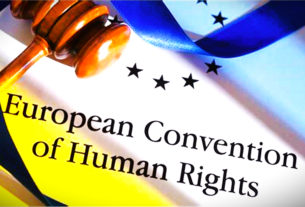The United Kingdom’s human rights landscape in 2024 presents a complex picture of both progress and persistent challenges. Following the election of a Labour government in July 2024, some policy reversals signaled a shift in approach. However, significant issues remain, particularly around protest rights, asylum seeker policies, disability rights, and protections for LGBTQ+ individuals. These ongoing struggles underscore the delicate balance between security, governance, and the safeguarding of fundamental freedoms.
One of the most pressing concerns relates to the tightening of protest laws. The Public Order Act 2023, along with the Police, Crime, Sentencing and Courts Act 2022, granted expanded powers to law enforcement agencies, prompting criticism that they curtail free speech and peaceful assembly. These laws introduced harsher penalties for protest-related offenses and broadened police discretion during demonstrations. As a result, dozens of activists have been imprisoned, some receiving unusually severe sentences despite their non-violent actions. Even with a change in government, the Labour administration maintained its defense of these laws, drawing sharp rebukes from human rights advocates who argue that these measures undermine civil liberties. Additionally, the use of mass surveillance and facial recognition technology at protests has raised serious privacy concerns, with international human rights bodies urging their immediate cessation.
The treatment of asylum seekers and migrants remains a contentious topic. Although the Labour government abandoned the previous plan to relocate asylum seekers to Rwanda, the broader refugee policy still faces criticism. Anti-migrant rhetoric persists in political discourse, and some legislation potentially infringes on refugee rights. Furthermore, historic grievances tied to communities such as the Windrush generation and the Indigenous Chagossian people have yet to be fully addressed. These groups continue to seek recognition, the right to return, and adequate compensation for past injustices, but government responses have been slow and inadequate.
Disability rights also remain an area of concern. The UK’s Mental Health Act has been criticized for allowing the arbitrary detention and involuntary treatment of individuals with disabilities, including children, based solely on their disability status. Reports show that people with learning disabilities and autism detained under this law often spend extended periods, sometimes years, in institutional settings. In response, the government has pledged legislative reforms to limit such practices, but advocacy groups emphasize the need for urgent action to protect the rights and dignity of disabled individuals.
In April 2025, the UK Supreme Court made a landmark ruling on the legal definitions of “man” and “woman” under the Equality Act 2010, defining these terms based on biological sex. This decision effectively excludes transgender people from certain legal protections, sparking widespread criticism from LGBTQ+ organizations. The ruling raises concerns about discrimination and limits access to gender-specific spaces and services for transgender individuals, threatening to roll back hard-fought gains in gender identity rights.
In summary, while the UK has shown some progress in addressing human rights issues, significant hurdles remain. The government’s approach continues to face scrutiny both domestically and internationally, especially regarding civil liberties, migrant protections, disability rights, and LGBTQ+ equality. As the country navigates these complex challenges, the commitment to upholding human rights and fostering inclusion will be critical to ensuring justice for all its residents.




